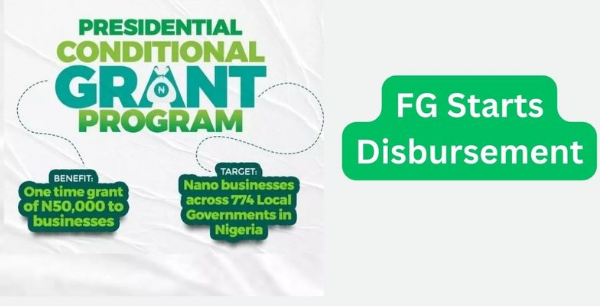Grants in Nigeria have historically been distributed through various government ministries, agencies, and departments such as:
- The Central Bank of Nigeria (CBN): Provides targeted intervention grants in sectors like agriculture and entrepreneurship.
- The Ministry of Humanitarian Affairs, Disaster Management, and Social Development: Oversees grants under the National Social Investment Programs (NSIPs), such as the Conditional Cash Transfer (CCT) and the N-Power Program.
- The Bank of Industry (BOI): Offers grants and soft loans to businesses, particularly in the SME sector.
- The Small and Medium Enterprises Development Agency of Nigeria (SMEDAN): Focuses on capacity-building grants and funding support for entrepreneurs.
Priority Areas for Federal Government Grants in 2024/2025
- Agriculture and Food Security Agriculture remains a cornerstone of Nigeria’s economy, employing a large portion of the population. The federal government is committed to boosting food security through grants for smallholder farmers, cooperatives, and agribusiness startups. Programs like the Anchor Borrowers’ Program (ABP), which has been successful in recent years, are expected to receive additional funding. These grants aim to improve access to high-yield seeds, fertilizers, and modern farming equipment.
- Youth and Women Empowerment In line with Nigeria’s population dynamics, where youths form a significant percentage of the populace, the government continues to prioritize youth empowerment. Programs such as the Youth Enterprise with Innovation in Nigeria (YouWiN!) and the N-Power scheme will likely see expansions to accommodate more beneficiaries. Women entrepreneurs will also benefit from gender-specific grants aimed at closing the gender gap in business and leadership.
- SME Development Small and medium-sized enterprises (SMEs) are critical to Nigeria’s economic diversification agenda. Federal government grants are expected to focus on SMEs in technology, manufacturing, and the creative industries. These grants aim to address challenges such as inadequate access to finance, infrastructure, and skills development.
- Education and Skills Acquisition To combat rising unemployment, grants will support education and vocational training programs. Initiatives like the Universal Basic Education (UBE) program will receive funding to improve access to quality education, especially in rural areas. Skills acquisition grants will also target out-of-school youths, equipping them with marketable skills in areas like information technology, renewable energy, and construction.
- Healthcare and Social Welfare Grants in the healthcare sector are crucial for addressing issues like maternal and child health, disease prevention, and the provision of basic health infrastructure. Programs such as the Basic Healthcare Provision Fund (BHCPF) will continue to be prioritized, ensuring that underserved communities have access to essential services. Social welfare grants under the NSIPs, such as the Conditional Cash Transfer (CCT), will be expanded to cushion the impact of economic challenges on vulnerable populations.
- Technology and Innovation As Nigeria pushes towards a knowledge-based economy, grants for technology startups and innovators will be a key focus. Initiatives like the Digital Nigeria Program are expected to receive increased funding, enabling young Nigerians to explore opportunities in artificial intelligence, robotics, and fintech.
Key Federal Grant Initiatives for 2024/2025
- Conditional Cash Transfer (CCT) This program provides direct financial support to the poorest households, ensuring that they can meet their basic needs. In 2024/2025, the program will focus on expanding its reach to rural and underserved communities.
- Anchor Borrowers’ Program (ABP) Managed by the Central Bank of Nigeria, this program provides grants and low-interest loans to smallholder farmers. It aims to enhance agricultural productivity and reduce Nigeria’s reliance on food imports.
- N-Power Program A component of the National Social Investment Programs, N-Power offers stipends and training to unemployed youths. In the upcoming fiscal years, the program will incorporate more skill areas, including green energy and digital marketing.
- YouWiN! Connect This program targets young entrepreneurs by providing grants to fund innovative business ideas. The government plans to enhance mentorship opportunities and access to markets for participants.
- Development Bank of Nigeria (DBN) Grants The DBN collaborates with financial institutions to provide grants and low-interest loans to SMEs. These funds are crucial for businesses looking to scale operations or invest in new technologies.
How to Access Federal Government Grants
Accessing federal government grants requires adherence to specific application processes. Prospective beneficiaries should follow these steps:
- Identify Suitable Programs: Understand the focus areas of available grants and ensure your needs align with the program’s objectives.
- Prepare Documentation: Gather necessary documents such as business plans, identification documents, and financial statements.
- Apply Through Official Channels: Submit applications through government websites or designated portals. Be cautious of fraudulent schemes.
- Participate in Interviews/Assessments: Some programs may require you to attend interviews or submit additional assessments.
- Monitor Application Status: Stay informed about the progress of your application by following updates on official platforms.
Challenges and Recommendations
While federal government grants offer numerous opportunities, challenges persist:
- Limited Awareness: Many Nigerians remain unaware of available grants. Improved publicity and grassroots mobilization are essential.
- Corruption and Nepotism: Transparent application and disbursement processes must be ensured to curb corruption.
- Bureaucratic Bottlenecks: Streamlining application procedures will make grants more accessible to eligible beneficiaries.
- Monitoring and Evaluation: Regular assessment of grant programs will ensure they achieve intended outcomes and minimize resource wastage.
- Sustainability: Beneficiaries should receive training on effective utilization of funds to ensure long-term impact.
Conclusion
The 2024/2025 federal government grants in Nigeria represent a significant opportunity to address pressing developmental challenges, stimulate economic growth, and empower citizens. By prioritizing agriculture, SMEs, education, healthcare, and technology, these grants promise to make a substantial impact. However, the success of these initiatives will depend on transparent implementation, effective monitoring, and active citizen participation. For individuals, entrepreneurs, and organizations, staying informed and proactive in seeking these opportunities will be key to unlocking their potential.

